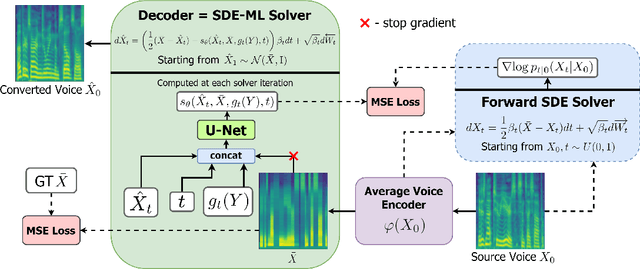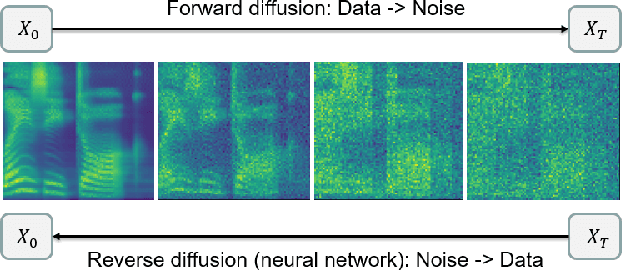Ivan Vovk
A Semi-Supervised Deep Learning Approach to Dataset Collection for Query-By-Humming Task
Dec 02, 2023



Abstract:Query-by-Humming (QbH) is a task that involves finding the most relevant song based on a hummed or sung fragment. Despite recent successful commercial solutions, implementing QbH systems remains challenging due to the lack of high-quality datasets for training machine learning models. In this paper, we propose a deep learning data collection technique and introduce Covers and Hummings Aligned Dataset (CHAD), a novel dataset that contains 18 hours of short music fragments, paired with time-aligned hummed versions. To expand our dataset, we employ a semi-supervised model training pipeline that leverages the QbH task as a specialized case of cover song identification (CSI) task. Starting with a model trained on the initial dataset, we iteratively collect groups of fragments of cover versions of the same song and retrain the model on the extended data. Using this pipeline, we collect over 308 hours of additional music fragments, paired with time-aligned cover versions. The final model is successfully applied to the QbH task and achieves competitive results on benchmark datasets. Our study shows that the proposed dataset and training pipeline can effectively facilitate the implementation of QbH systems.
Diffusion-Based Voice Conversion with Fast Maximum Likelihood Sampling Scheme
Sep 28, 2021



Abstract:Voice conversion is a common speech synthesis task which can be solved in different ways depending on a particular real-world scenario. The most challenging one often referred to as one-shot many-to-many voice conversion consists in copying the target voice from only one reference utterance in the most general case when both source and target speakers do not belong to the training dataset. We present a scalable high-quality solution based on diffusion probabilistic modeling and demonstrate its superior quality compared to state-of-the-art one-shot voice conversion approaches. Moreover, focusing on real-time applications, we investigate general principles which can make diffusion models faster while keeping synthesis quality at a high level. As a result, we develop a novel Stochastic Differential Equations solver suitable for various diffusion model types and generative tasks as shown through empirical studies and justify it by theoretical analysis.
Grad-TTS: A Diffusion Probabilistic Model for Text-to-Speech
May 13, 2021



Abstract:Recently, denoising diffusion probabilistic models and generative score matching have shown high potential in modelling complex data distributions while stochastic calculus has provided a unified point of view on these techniques allowing for flexible inference schemes. In this paper we introduce Grad-TTS, a novel text-to-speech model with score-based decoder producing mel-spectrograms by gradually transforming noise predicted by encoder and aligned with text input by means of Monotonic Alignment Search. The framework of stochastic differential equations helps us to generalize conventional diffusion probabilistic models to the case of reconstructing data from noise with different parameters and allows to make this reconstruction flexible by explicitly controlling trade-off between sound quality and inference speed. Subjective human evaluation shows that Grad-TTS is competitive with state-of-the-art text-to-speech approaches in terms of Mean Opinion Score. We will make the code publicly available shortly.
 Add to Chrome
Add to Chrome Add to Firefox
Add to Firefox Add to Edge
Add to Edge